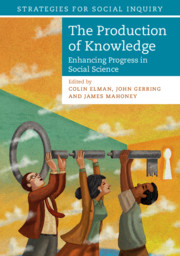Objective:Amyotrophic Lateral Sclerosis (ALS) is a devastating neurodegenerative disease that results in progressive decline in motor function in all patients and cognitive impairment in a subset of patients. Evidence suggests that cognitive reserve (CR) may protect against cognitive and motor decline in ALS, but less is known about the impact of specific occupational skills and requirements on clinical outcomes in ALS. We expected that a history of working jobs with more complex cognitive demands would protect against cognitive decline, while jobs that require fine and complex motor skills would protect against motor dysfunction.
Participants and Methods:Participants were 150 ALS patients recruited from the University of Pennsylvania’s Comprehensive ALS Center. Participants underwent clinical and neuropsychological evaluations within 1 year of ALS diagnosis. Cognitive performance was measured using the Edinburgh Cognitive and Behavioral ALS Screen (ECAS), which includes ALS-Specific (e.g., verbal fluency, executive functions, language, social cognition) and NonSpecific (e.g., memory, visuospatial functions) composite scores. Motor functioning was measured using the Penn Upper Motor Neuron (UMN) scale and the ALS Functional Rating Scale (ALS-FRS). Occupational skills and requirements for each participant were assessed using data from the Occupational Information Network (O*NET) Database. O*NET data were assessed using principal components analysis, and 17 factor scores were derived representing distinct worker characteristics (n=5), occupational requirements (n=7), and worker requirements (n=5). These scores were entered as independent variables in multiple linear regression models using ECAS, UMN, and ALS-FRS scores as dependent variables covarying for education.
Results:Preserved ECAS ALS-Specific performance was associated with jobs that involve greater reasoning abilities (ß=2.03, S.E.=0.79, p<.05), analytic skills (ß=3.08, S.E.=0.91, p<.001), and humanities knowledge (ß=1.20, S.E.=0.58, p<.05), as well as less exposure to environmental hazards (ß=-2.42, S.E.=0.76, p<.01) and fewer demands on visualperceptual (ß=-1.75, S.E.=0.73, p<.05) and technical skills (ß=-1.62, S.E.=0.63, p<.05). Preserved ECAS Non-Specific performance was associated with jobs that involve greater exposure to conflict (ß=0.82, S.E.=0.33, p<.05) and social abilities (ß=0.65, S.E.=0.29, p<.05). Jobs involving greater precision skills (ß=1.92, S.E.=0.79, p<.05) and reasoning ability (ß=2.10, S.E.=0.95, p<.05) were associated with greater disease severity on the UMN, while jobs involving more health services knowledge were associated with worse motor functioning on the ALS-FRS (ß=-1.30, S.E.=0.60, p<.05).
Conclusions:Specific occupational skills and requirements show protective effects on cognitive functioning in ALS, while others confer risk for cognitive and motor dysfunction. Preserved cognitive functioning was linked to a history of employment in jobs requiring strong reasoning abilities, social skills, and humanities knowledge, while poorer cognitive functioning was linked to jobs involving a high risk of exposure to environmental hazards and high visuo-perceptual and technical demands. In contrast, we did not find evidence of motor reserve, as no protective effects of occupational skills and requirements were found for motor symptoms, and jobs involving greater precision skills, reasoning abilities, and health services knowledge were linked to worse motor functioning. Our findings offer new insights into how occupational history may protect against cognitive impairment or confer elevated risk for cognitive and motor dysfunction in ALS.




